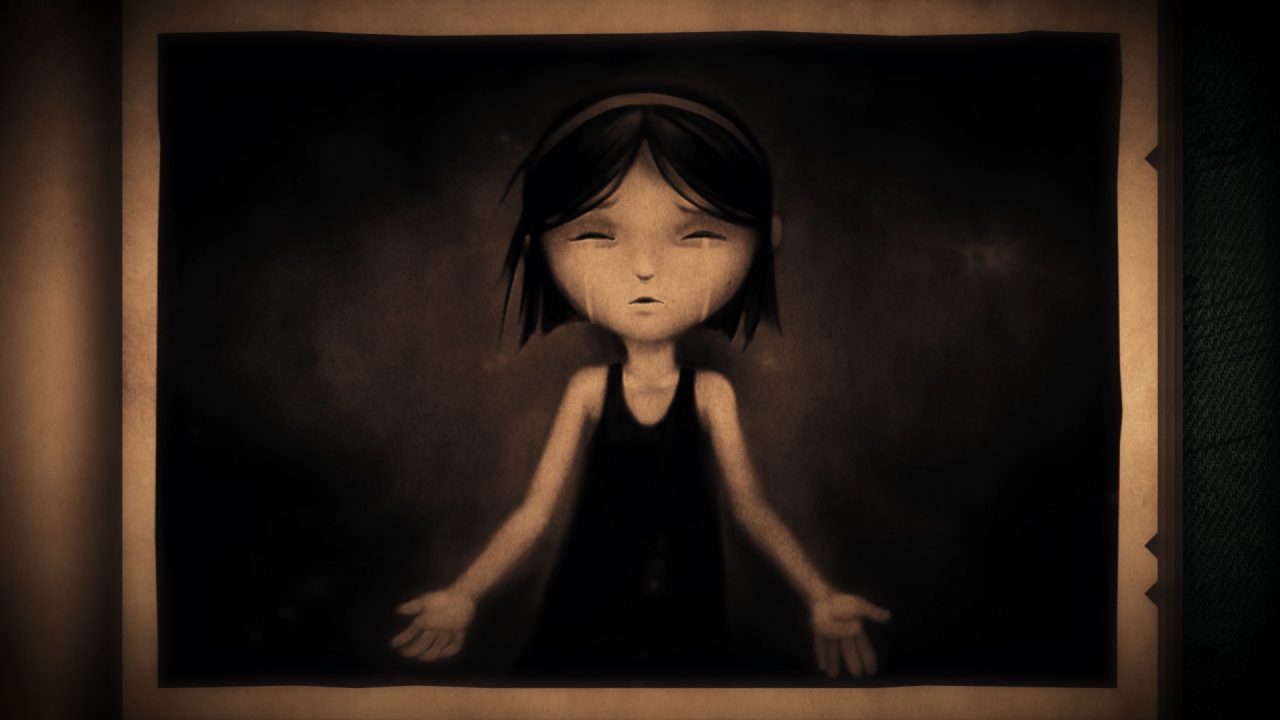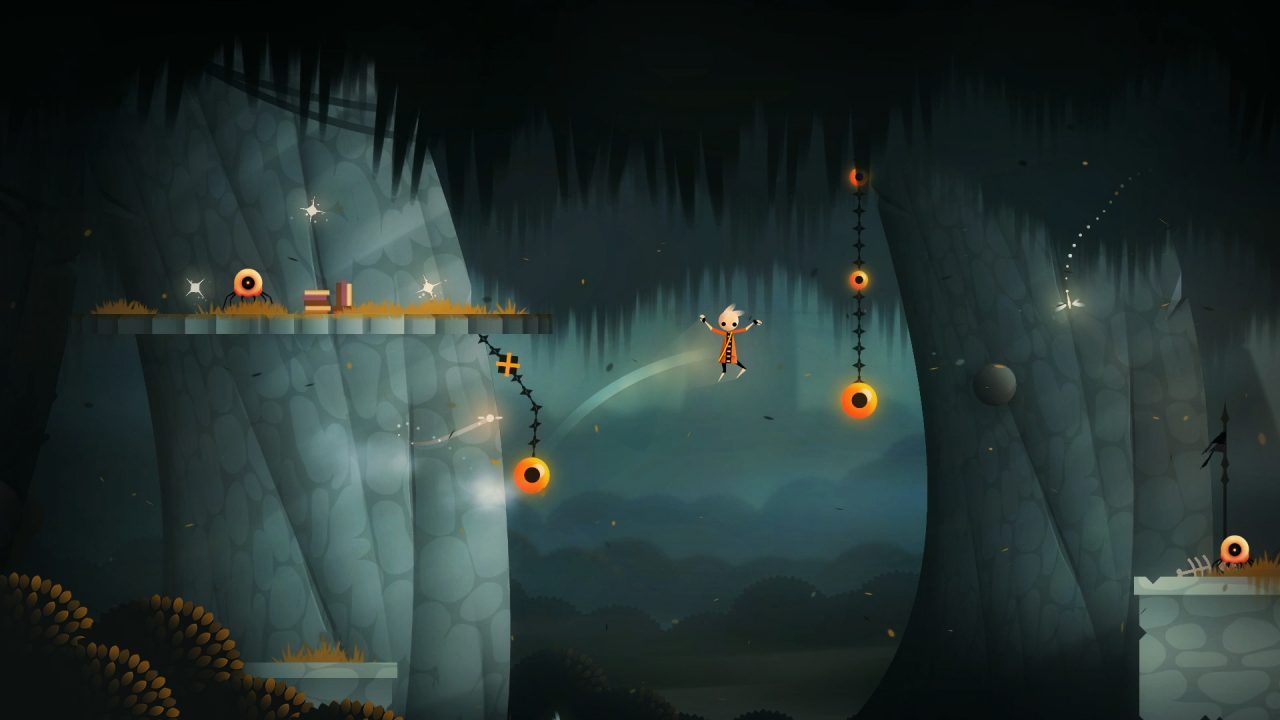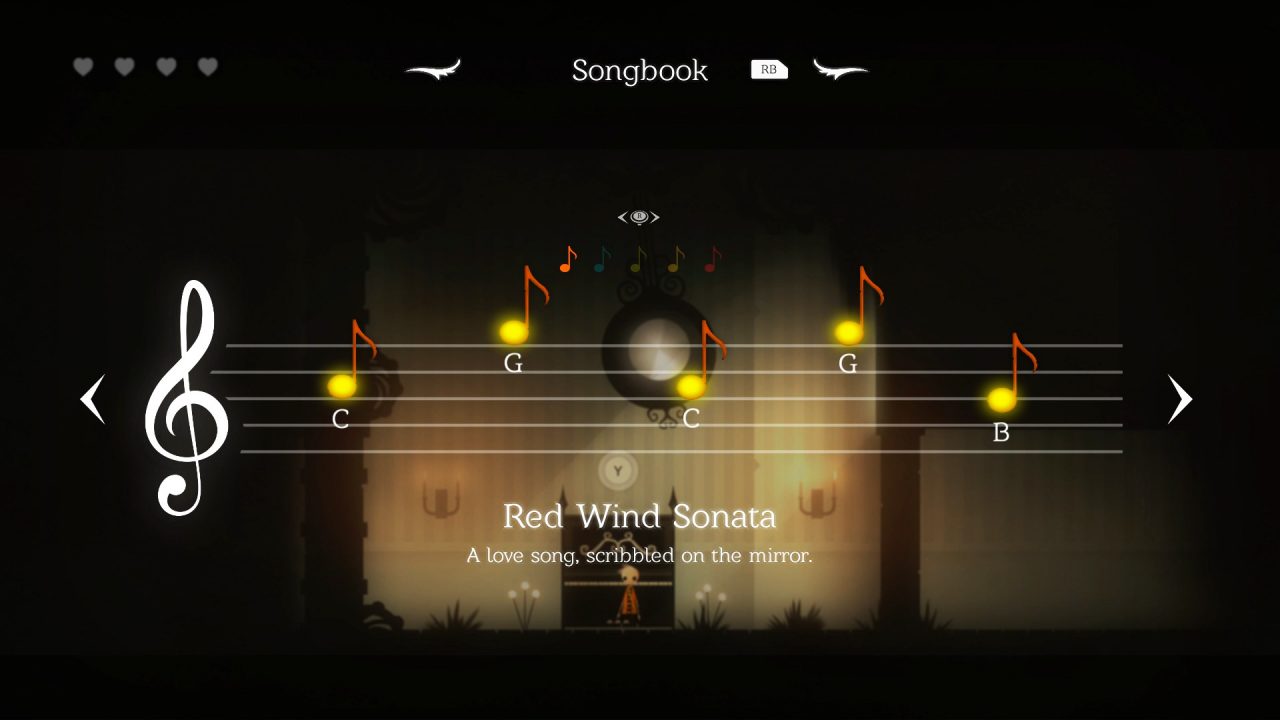Neversong immediately caught my eye when I first saw it on Steam. Its aesthetics, reminiscent of those well-crafted puzzle/mystery Flash games I enjoyed in my childhood, evoked long-forgotten but comforting memories of the hours I spent at the computer lab after school. Similarly, its puzzle-platforming gameplay reminded me of Limbo, another favorite gaming experience of mine. But once the rosy sheen of nostalgia wore off and the giddiness of starting a new game died down, there was little substance to sustain my excitement.
Players are put into the shoes of Peet, a timid but determined young boy who accidentally stumbles into an abandoned asylum with his childhood friend Wren. A mysterious ghoul kidnaps Wren, and Peet sets out from his hometown of Red Wind Village to save her. Peet’s journey is one of heartbreak and sinister revelations as he unravels the larger mystery surrounding Wren’s kidnapping; or at least that’s what it attempts to be.

From start to finish, the entirety of the game, cutscenes and all, takes a total of roughly three hours to complete. If the physics for some of the puzzles were a bit more cooperative, it could have easily gone down to just under three hours. This isn’t to say that runtime is indicative of quality, as games like To the Moon or Undertale have proven, but Neversong‘s writing isn’t nearly good enough to justify such a short runtime, even by indie standards.
The lack of detail and agency throughout the story makes it difficult to form any sort of emotional bond with the main characters, let alone Peet’s various acquaintances you meet along the way. But Peet’s relationship with Wren, in particular, lacks depth despite being the main conceit of the game. Indeed, it’s difficult to really care about Peet’s motivations when the only clues given to you about his supposedly close friendship with Wren are a handful of photos and a smattering of vague NPC dialogue. And when the story petered out after three hours with little to no development, I felt annoyed that I even tried to understand the characters and world at all.
Neversong can’t seem to shake this lack of attention to detail in its gameplay either, as it adds little to no meat to the basic skeleton of puzzle/adventure gameplay. Puzzles require little more than some eyeballing and a dash of deliberation to solve, and combat doesn’t fare much better, as jumping up to click spam flying enemies is the most advanced maneuver the game requires of you. Enemy designs don’t make encounters any more exciting either, as they almost entirely consist of some variation of a one-eyed orange monster with different types of appendages depending on whether it flies, jumps or simply floats around. There are attempts to shake things up just past the halfway mark when some new enemies make an appearance, but at this point, it feels like a token move to introduce a bit of variety for the last hour or so of the game, rather than a meaningful overall addition to the experience.

There are some items you can acquire later on that allow you to glide, grapple, and move around a bit faster. But outside of the ability to grapple (and even then, only onto specific objects), the other options are unlocked so late into the game that you’ll only find one or two meaningful uses for them before the credits. These items can be unlocked faster in new game plus if you fancy speedrunning, but otherwise new game plus is essentially void of new gameplay content.
This isn’t to say I found everything in Neversong disappointing, as the music and overall sound design are both easy on the ears and goosebump-inducing at the right moments. The screams of bosses as you whittle down their health had my hair stand on end, as if someone were raking their nails down a particularly screechy chalkboard, and some of the enemy additions managed to tickle my fight or flight instincts with their feral howls upon entering combat. The soundtrack does its best to fill the void in world-building left by the far too sparsely detailed world, but it ultimately fails to paint Red Wind Village as a compelling setting.

At the end of the day, Neversong is a game that lacks in creativity as much as it does in execution. Its incredibly short runtime clashes with the themes and emotions it tries to convey in its story, while the minimal gameplay and easy puzzles make for a decidedly unsatisfying gaming experience. With neither gameplay nor story fully covered, the end result is a game that can’t quite decide if it wants to be a point-and-click adventure or a puzzle-platformer, and quite frankly, it doesn’t try very hard to make you want to find out.


